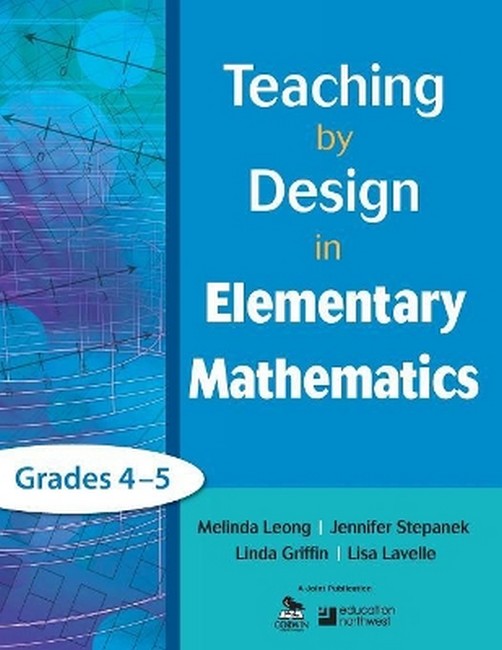Melinda Leong has served as a Senior Program Advisor in the Mathematics Education Unit at Education Northwest since 2001. She has been providing leadership in designing effective professional development in mathematics learning, teaching, and assessment. Before joining Education Northwest, she worked with the New York City Board of Education in District 2 as a teacher and director for 11 years at the K-8 level. She was the founder and director of the Manhattan Academy of Technology in New York, a middle school focused on integrating technology into a three-year comprehensive and rigorous academic program. Leong holds a B.A. in education and American studies from Tufts University, an M.A. in elementary education from Hunter College at the City University of New York, an M.A. in administration and supervision from City College at the City University of New York, and a graduate certificate in middle school mathematics from Portland State University. Jennifer Stepanek is a writer, editor, and researcher with Education Northwest in Portland, Oregon. She is the lead author of Leading Lesson Study: A Practical Guide for Teachers and Facilitators (2007), published by Corwin Press. Jennifer has worked with lesson study teams at a variety of sites in the Northwest to explore how teachers in the United States are adapting the Japanese model to fit their contexts and needs. Jennifer has written and edited a number of articles on lesson study and is also the co-author of An Invitation to Lesson Study, an electronic resource designed to help facilitators and other professional development providers introduce lesson study to others. Her previous projects include serving as the editor of Northwest Teacher, a math and science journal and writing publications for the It's Just Good Teaching series-research-based monographs on mathematics and science teaching. Linda Griffin joined Education Northwest June 2004 and serves as the director of the Mathematics Education Unit. Her professional background includes fourteen years as a middle and high school mathematics teacher, as well as eight years working on National Science Foundation grant projects focused on teacher enhancement, gender equity, and parent involvement in the area of mathematics. Griffin has extensive experience conducting staff development and presenting workshops at regional and national conferences and has taught university courses in mathematics, including mathematics content courses for pre-service elementary teachers. Linda holds a B.A. in mathematics from the University of California at Davis, an M.A in teaching and teacher education from the University of Arizona, and an Ed.D. in educational leadership from Northern Arizona University. Lisa Lavelle, a senior program advisor in the Mathematics Education Unit at Education Northwest, is primarily involved in providing professional development to K-12 teachers of mathematics through both research grants and contracts with districts. Through the Northwest Regional Comprehensive Center, she also provides technical assistance to state education agencies. Lisa also teaches Math Methods at Portland State University as an adjunct instructor. Prior to joining the Center for Classroom Teaching and Learning at Education Northwest (formerly the Northwest Regional Educational Laboratory) in September of 2008, Lavelle taught mathematics in both middle school and high school; served as a support teacher for elementary school mathematics; and worked with both preservice and inservice teachers in professional development. She earned her B.A. in Psychology with emphasis in Computer Science from Yale University and at the same time completed the Teacher Preparation Program in Secondary Mathematics at Yale. Lisa went on to earn her M.A. in Professional Studies, Middle School Mathematics, from George Washington University.
Request Academic Copy
Please copy the ISBN for submitting review copy form
Description
Acknowledgments About the Authors Introduction Session 1: Getting Started Session 2: Learning Landscape Session 3: Addition and Subtraction With Like and Related Fractions Session 4: Understanding Equivalent Fractions Session 5: Problem Solving With Rational Numbers Session 6: Decimal and Fraction Relationships Session 7: Comparing and Ordering Decimals and Fractions Session 8: Mathematical Models: Adding and Subtracting Fractions Session 9: Mathematical Games: Adding and Subtracting Fractions and Decimals Session 10: Understanding Standard Procedures Session 11: Instruction to Support Fluency With Standard Procedures Session 12: Designing the Prototype Lesson Session 13: Discussing Results Session 14: Reflecting On and Revising the Prototype Lesson Index
"As our teaching team went through the lesson design process we were amazed at the transformation that took place. It took us out of isolated practice and placed us into a collaborative setting where we could effectively redesign lessons so that student learning was positively impacted." -- Marla Ernst, Teacher and Math Coach "Teaching by Design in Elementary Mathematics is a wonderful tool that can easily be adopted by schools or districts looking to improve mathematics instruction and empower their teachers in the process. By providing a combination of mathematical knowledge, pedagogical strategies, and support for learning the new content and implementing it in the classroom, this volume will help groups of teachers work together to reflect on and improve their teaching of mathematics to all young children." -- Liza Finkel, Associate Dean "Helps teachers investigate how students learn, focusing on grade-appropriate math, activities and lesson plans for teacher teams to evaluate student performance. A fine resource for improving and supplementing education." -- James A. Cox, Editor in Chief "I strongly recommend this book for a professional development program that involves rational numbers for teachers in grades 4-5. A skilled facilitator could use the structure of this book to develop professional development in these other areas." -- Christie Perry * Mathematics Teaching in the Middle School, Vol. 17, No. 6, February 2012 *

